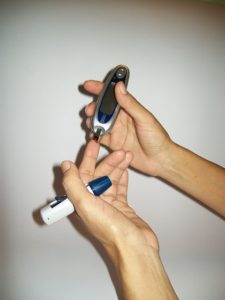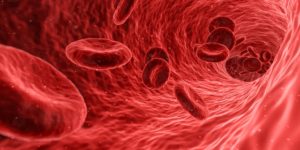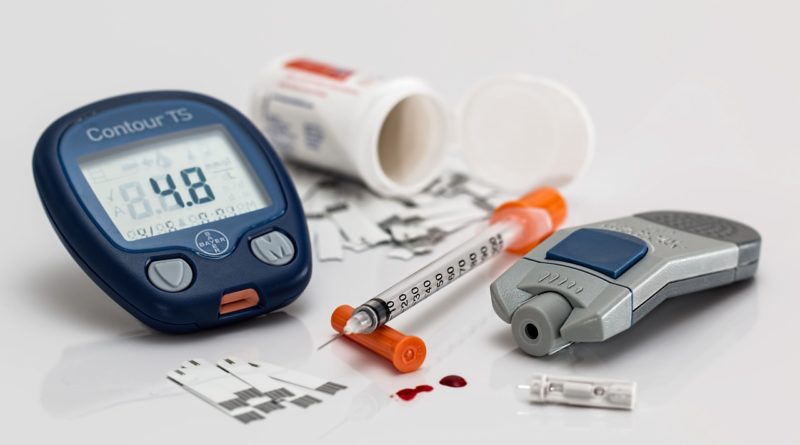3 Things You Didn’t Know about Insulin Hormone and its Effects on the Organism
Insulin is a hormone essential for life which regulates many metabolic processes that provide cells with needed energy. It is important to understand what insulin is, what it does, and how it affects the organism.
1.Insulin is an Energy Controller
 The proper storage and free of energy during feeding and fast stages are essential for survival and are principally controlled by insulin. The insulin is a peptide hormone (protein form) that is secreted by a gland called pancreas which is located behind the stomach, this gland is segmented in different parts called islets of Langerhans (the term insulin comes from Latin that means island) and there are different types of islets classified according to its function: beta and alpha islets, which secrete insulin and glucagon hormones respectively, are the important ones.
The proper storage and free of energy during feeding and fast stages are essential for survival and are principally controlled by insulin. The insulin is a peptide hormone (protein form) that is secreted by a gland called pancreas which is located behind the stomach, this gland is segmented in different parts called islets of Langerhans (the term insulin comes from Latin that means island) and there are different types of islets classified according to its function: beta and alpha islets, which secrete insulin and glucagon hormones respectively, are the important ones.
This hormone has many effects but the main object of insulin is to control how the body utilizes carbohydrates found in different foods. Carbs are transformed by the organism in a type of sugar called glucose, which is the main energy source used by the cells. This hormone permits muscle, liver, and fat (adipose tissue) cells to make use of this glucose as a source of energy to function correctly.
This way, Insulin maintain glucose levels in blood in a standard range between 80-105 mg/dL stimulating the entrance and storage of this nutrient to the muscle and adipose tissue and consequently, in liver its storage is favored while its productions are inhibited.
Let’s see it this way, the energy needed is in form of glucose, this glucose is needed by the cells in different tissues and its entry and use is controlled by insulin, that means that when the insulin is not produced by the pancreas, glucose is around the bloodstream elevating glucose levels and not used by the cells, originating malfunctions in the organism.
2. Insulin Permits Organs to Use Glucose
As mentioned before, the insulin is produced by the islets of Langerhans in the pancreas along to glucagon. Both of them are secreted straight into the bloodstream, functioning together to control glucose levels. While insulin stops blood sugar from rising too high, glucagon otherwise prevents it from becoming too low.
Beta cells of the pancreatic islets produce insulin. When we eat a meal and the glucose levels are up, these cells secrete insulin for this to low glucose levels in blood and permitting other cells to use in obtaining the energy they need or to be stored as glycogen until it’s needed.
Alpha cells of the pancreatic islets produce glucagon. When we have a prolonged fast or exercising, these cells secrete glucagon which encourages liver and muscles cells to transform stored glycogen to glucose, which is then freed into the bloodstream, elevating blood sugar levels.
With this system, the organism guarantees that the blood glucose levels persist within set parameters, which permits the body to function appropriately.
3. What Happens When There are Difficulties with the Production or Use of Insulin
Problems with the production or function of insulin are associated with diabetes, there are two types of diabetes which are type 1 and 2 diabetes, being these the principal ones although there are other more infrequent types.

Type 1 Diabetes
Antibodies are substances produced by the organism to destroy other rare substances that enter our body and protect us against them. When there are genetic or immunologic problems these antibodies may be capable to destroy beta cells of the pancreas, bringing as consequence the decreasing of insulin production, developing this way type 1 diabetes, which is commonly produced in kids.
With low levels of insulin, the organism isn’t capable anymore to move glucose from the blood into the cells, causing high glucose levels in blood and so many things can occur:
- Extra glucose escapes into the urine, which drags extra water into the urine-producing more recurrent urination and thirst. Consequently, this leads to dehydration which can produce confusion
- The energy needed seems to be affected due to the incapability of cells to take glucose. This makes the body exhausted and can cause weight loss, and if this is recurrent patients can become very ill.
- When this occurs, the organism is going to try to obtain energy from the degradation of fats, producing acids as waste products. When this becomes regular, this can lead to coma and death if medical attention is not provided.
For this reason, type 1 diabetes patients will inject insulin in order to survive.
Type 2 Diabetes
When beta cells of the pancreas present problems manufacturing insulin, or the amount produced is not enough, or when the cells receptors for insulin become sensitive and stop responding to insulin, type 2 diabetes is developed and its severity will be determined by on how improved it is. The receptors malfunctions are more likely to appear on persons who carry an extreme amount of weight.
Patients with type 2 diabetes can regulate their symptoms by adjusting their diet and losing weight, some will need to take pills, and some other must inject insulin to enhance glucose levels in the blood.
Excess of Insulin
Cells will take in much more glucose from the blood if a person accidentally injects more insulin than needed (called insulin reaction) when this occurs, hypoglycemia is developed which refers to abnormally low blood glucose levels. In order to bring the levels back to standard, the organism responds to hypoglycemia by liberating deposited glucose from the liver. When the glucose levels are down, a person can feel ill.
A specialized set of nerves called the sympathetic nervous system are in charge to respond to hypoglycemia fighting it back. Some symptoms presented are sweating, palpitations, anxiety, hunger, tremor, and pale complexion.
If the glucose levels are down and they are not treated on time, it can affect the brain performance because it depends almost completely on glucose as the supply of energy to work correctly. This can cause misperception, dizziness, fits and even coma in critical cases.

Insulin Resistance
When cells stop responding to insulin-like they are supposed to, it is said that they become “resistant” to insulin and the glucose won’t be used by them remaining on the bloodstream. When this occurs, the pancreas will start to produce more insulin due to the high levels of glucose in the blood, this leads to high insulin levels in the blood as well, called hyperinsulinemia.
Sooner or later, the pancreas may not be able to retain up anymore and the cells in the pancreas may turn out to be injured. Now de production of insulin will decrease, and the levels of insulin will be low which can lead to increase rapidly blood sugars levels.
This may also precedent to type 2 diabetes. Insulin resistance is the principal cause of this common disease that touches about 9% of people worldwide.
How Do I know if I Have Diabetes?
Take care of your glucose levels, the principal thing you have to take care of is your diet and physical activity but you must consult your doctor for help if you consider you may have any problems with insulin production and its levels. You must have your insulin and glucose levels tested if you present some of these symptoms:
- Augmented hunger, especially after eating
- Increased thirst
- Inexplicable weight loss
- Blurred vision
- Headaches
- Recurrent urination
Additional warning signs of type 2 diabetes difficulties may include:
- Current weight gain
- Numbness and tingling itching of the skin
- Slow-healing sores or cuts
- Reduced vision
If you have any of these diabetes signs you must contact your doctor so you can have a diabetes test.




